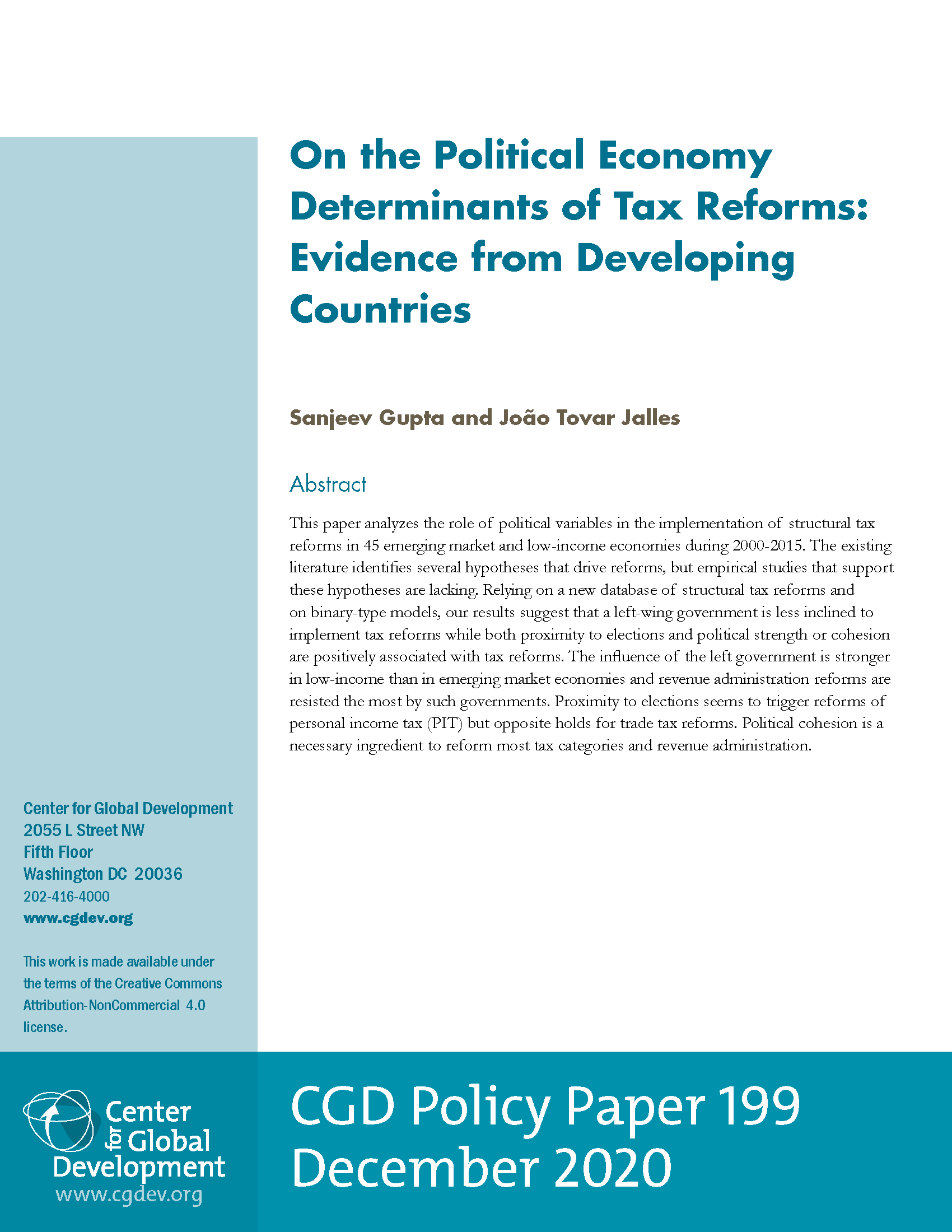Recommended
It is not uncommon for different interest groups to oppose tax reforms even when these reforms promote a more equitable and efficient tax system. Tax reforms are notoriously difficult to design and implement, and there is little consensus on considerations that help advance them among the general population. In a paper published today, we delve into political considerations that influence the implementation of tax reforms in 45 emerging market and low-income economies. We find that both proximity to elections and political cohesion in a given country can help foster tax reforms, while left-leaning orientation of governments can deter reforms, as we describe below.
Key political drivers of reforms
Three political considerations tend to shape the implementation of tax and spending policies:
- the influence of elections;
- political cohesion; and
- the ideology of the ruling party or coalition.
As reforms may entail short-term costs while gains can take time to materialize, reforms are less likely before elections and more likely in the beginning of the new political term. There is also the risk the incumbent government may adopt policies before elections that are not necessarily appropriate from the perspective of long-term health of the economy (or public finances) in an attempt to win over voters.
Governments operating in a fragmented decision-making context tend to preserve the status quo on tax and spending policies. Changes in these policies occur only when a critical number of institutional or partisan actors agree. As decision-making becomes more fragmented, policy changes become less frequent and even less disruptive, leading to suboptimal policy outcomes. Ideology of decision-makers is reflected in tax-and-spending policies adopted by a government. Left-leaning governments tend to be associated with higher public expenditures on welfare policies and a sizable public administration. This is because they draw their support from workers and the middle- and low-income segments of the population. To finance these expenditures, these governments would be expected to tax more and to tax more progressively.
Nature of tax reforms
We looked at tax reforms in 45 emerging market and low-income economies implemented over the 2000-2015 period. These reforms covered personal income tax; corporate income tax; goods and services taxes split among three subcategories (value-added taxes, excises, and other goods and services taxes); trade taxes; property taxes; and, finally, revenue administration. The last comprised eight areas: (i) management, governance and human resources; (ii) large taxpayers office and segmentation; (iii) IT systems; (iv) registration and filling; (v) audit and verification; (vi) management of payment obligations; (vii) improving compliance; and (viii) customs clearance. The vast majority of tax reforms in our sample were goods and services taxes. In general, fewer major reforms have been implemented in the area related to property taxes. Reforms in tax administration have been more the rule than the exception, accompanying a specific tax policy measure.
In sub-Saharan Africa, the majority of tax reforms were implemented during 2000-2004. More recently, the region has focused increasingly on corporate income tax reforms. Emerging market economies implemented more reforms in the area of personal income tax, value-added, and excises, while low-income countries focused more on trade taxes. Emerging market economies and low-incomes countries are comparable when it comes to other taxes and revenue administration reforms.
Proximity to elections and political cohesion tend to advance tax reforms
We find that left-wing governments are less inclined to implement tax reforms, while tax reforms are more likely in proximity to elections and in situations of political cohesion. The reform-hindering effect of the left ideology is stronger in low-income than in emerging market economies. Interestingly, revenue administration reforms are resisted the most by left-leaning governments. Proximity to elections seems to trigger reforms of personal income tax but opposite holds for trade tax reforms. Not surprisingly, political cohesion is a necessary ingredient to reform most tax categories and revenue administration.
Within tax administration, closeness to elections acts as a catalyst of reforms particularly in the areas of human resources, IT systems, registration and filling, audit, management of payment obligations and customs clearance. Greater political cohesion enhances the likelihood of reforms in these areas. All in all, proximity to elections together with political cohesion can overcome the resistance to reform by left-leaning government.
Disclaimer
CGD blog posts reflect the views of the authors, drawing on prior research and experience in their areas of expertise. CGD is a nonpartisan, independent organization and does not take institutional positions.






